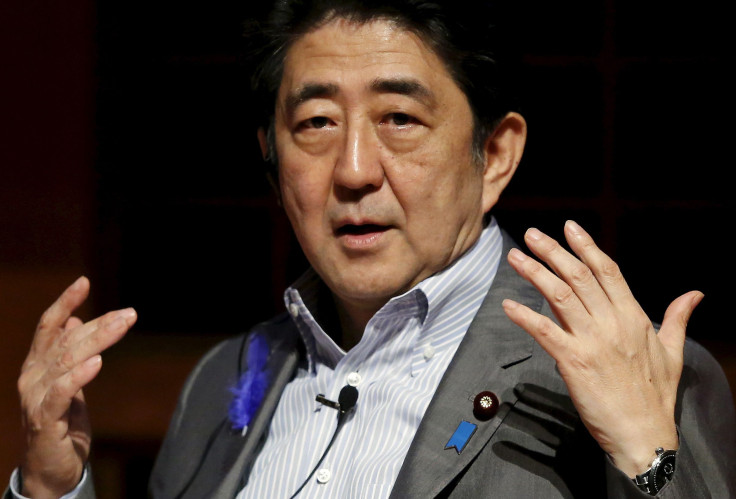Japan’s Yen Problem: Prime Minister Shinzo Abe Tackling Stronger Currency With New Stimulus Measures

Japan has hit the skids in the past few months, with a mixture of national and international developments complicating Prime Minister Shinzo Abe’s efforts to release the country from decades of low growth and near-deflation. The headwinds are giving Abe, who has staked his career on a brand of economic policy known as Abenomics, a renewed reason to try more government spending and new kinds of tax breaks.
“Abe is unlikely to take his foot off the fiscal gas pedal anytime soon,” Scott Seaman, a senior analyst for the Eurasia Group wrote in a research note. “While the hawks will squawk, the doves will continue to dominate policymaking.”
Most significantly, Abe is set to ignore warnings from deficit-minded legislators and officials, and postpone a planned hike in the consumption tax that had been eyed for April 2017. After years of spending to juice the economy, there has been some pressure to be more frugal, but a tax increase could also scare off consumers in Japan, who need to open their wallets if the country is to break out of its two-decade bout with deflation.
The Abe government — with one eye on legislative elections this summer and on the G-7 summit it will host near the end of May — is formulating a new package of stimulus measures. Some of that plan could involve speeding up public works projects, while another part would be tax changes such as vouchers for child care and higher pay for child care workers, according to Seaman.
Stephen Jen, a partner in SLJ Macro Partners, a research firm, said Abe’s policies need to focus more on household spending. So far, it has emphasized lowering credit costs for large companies to kick-start the economy.
“Abenomics has favored large corporations at the expense of consumers,” Jen said. “And consumers have always been weak links in Japan.”
The Bank of Japan’s latest foray into innovative central banking, known as negative interest rate policy, blindsided global financial markets in January, but has had no clear effect on business activity. It has, however, led to a stronger Japanese yen, a paradoxical effect of a policy that is intended to put more money into circulation.
The yen weakened massively after the government announced a broad stimulus package in October 2014, but this year the Japanese currency has shown signs of regaining levels not seen since then, with an appreciation of about 10 percent this year alone. The strengthening yen has been “a verdict that the BOJ’s policies are no longer potent,” said Jen. T. The central bank’s floundering has also renewed a debate within Japan about whether the government needs to step in and ensure that a rising yen doesn’t hem in Japanese exporters.
“We’re watching the foreign exchange market with a sense of tension, and we’ll take measures as appropriate,” Yoshihide Suga, chief cabinet secretary, said last week. “The government believes excessive and disorderly movements in the exchange rate have a negative effect.”
Carl Weinberg, chief economist at High Frequency Economics, said the comments have put direct intervention on behalf of the yen on the table as one possible policy lever. “Whether the government of Japan will intervene in the currency markets, and at what point, is unknowable but surely not unthinkable,” Weinberg said.
Part of Japan’s problem flows from the United States, where the Federal Reserve has moved off its earlier plans for interest rate increases. Higher rates in the United States would have drawn money into higher-yielding dollar-denominated assets, easing pressure on the yen.
Another marquee effort by Abe to loosen regulations on the cosseted Japanese economy, the Trans-Pacific Partnership, has stalled since 12 countries clinched the agreement in Atlanta last fall.
Since then, the agreement has hit a brick wall in the United States. The pharmaceutical industry has complained the deal doesn’t adequately improve patent protection for cutting-edge drugs known as biologics, while major banks and insurers have fretted that TPP rules on the free flow of data across national borders excludes them.
Also, former secretary of state Hillary Clinton, who supported the TPP while in office, said during her campaign for the Democratic presidential nomination that she would seek changes to the agreement. And Donald Trump, the real estate developer who is the front-runner for the Republican nomination, has roundly criticized U.S. trade policy, exposing a deep rift within the Republican base on the subject.
© Copyright IBTimes 2024. All rights reserved.











